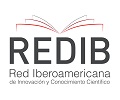Notes on publishing and Argentine literature during the democratic transition
DOI:
https://doi.org/10.14409/eltaco.10.20.e0154Keywords:
Argentine literature, publishing policies, democratic transition, publishers, catalogsAbstract
Towards the end of the seventies some publishing houses unveiled specific collections dedicated to Argentine literature, and oriented their catalog in that direction; production that was silenced or banned under the military dictatorship were beginning to emerge, along with texts published in exile that could only then timidly begin to circulate in Argentina. Here we will study those publishing policies, the trajectories of publishers behind them, the collection directors, the specific catalogs and, finally, the processes of canonization and consecration of some authors and works —or, conversely, the reasons for their premature decline—. We will not review that political, economic and cultural context, already long studied and traveled through. More modestly, we will analyze six cases that are particularly significant and that cover about fifteen years (1978‒1992): Bruguera, Pomaire, Editorial de Belgrano, Legasa, Centro Editor de América Latina, Sudamericana.





















